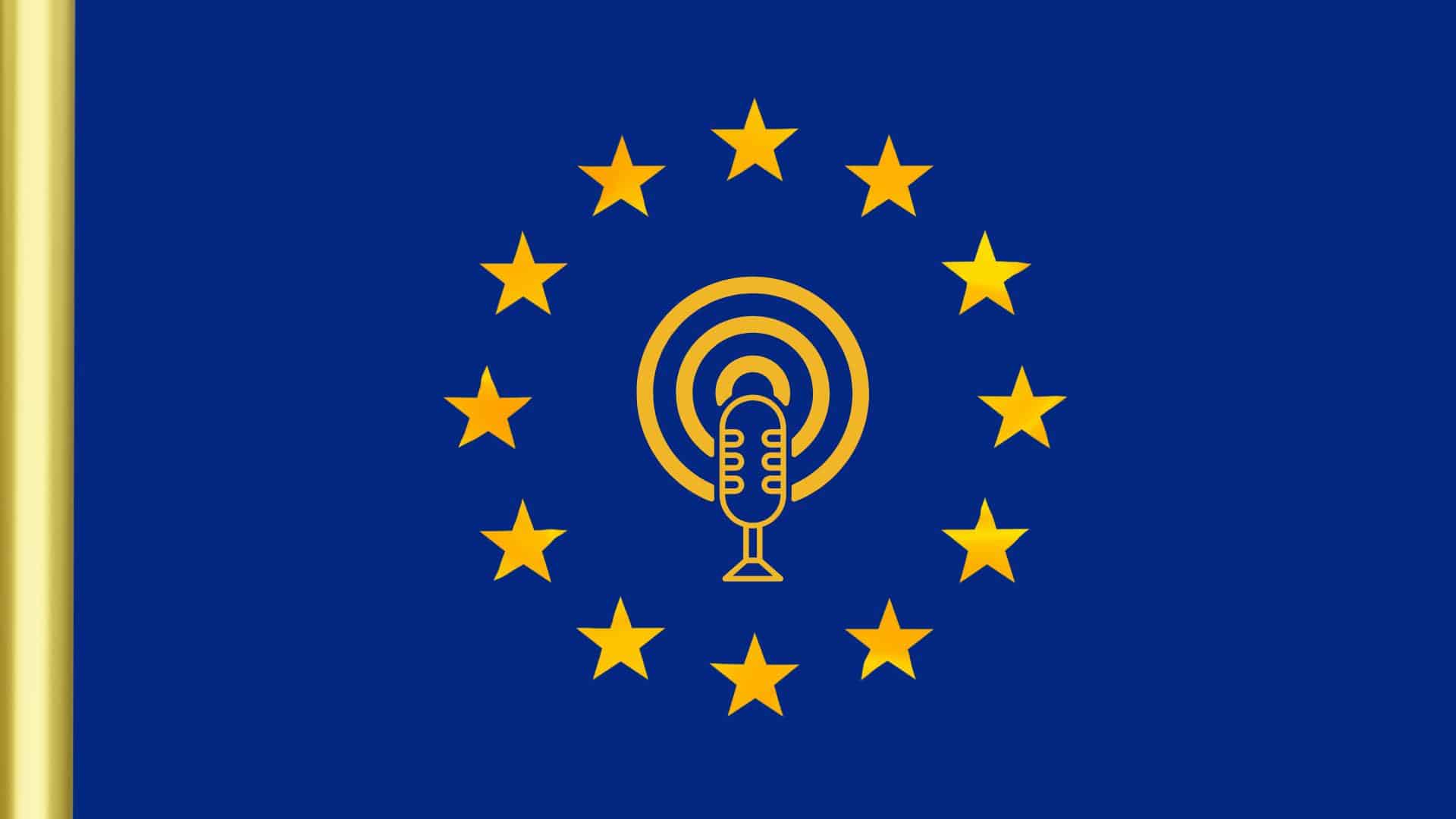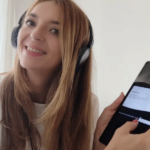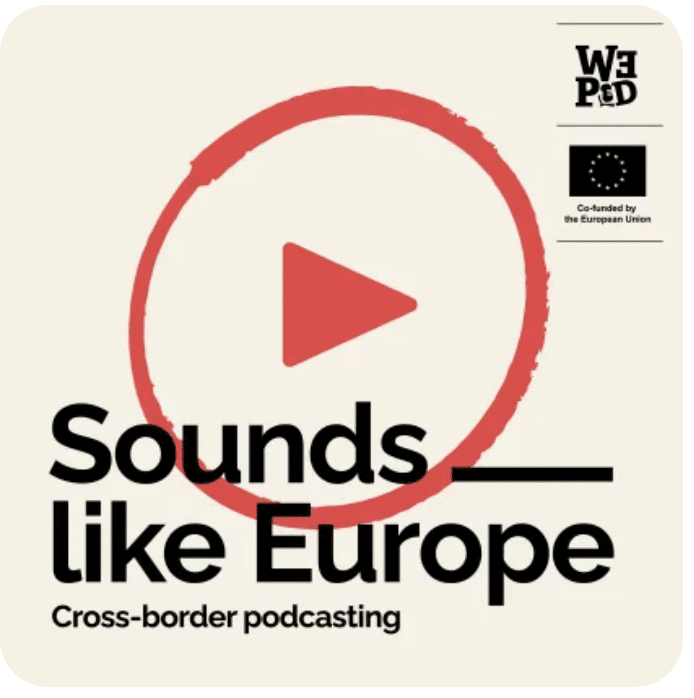Podcasts have become an essential way to tell important stories, whether they are in French, Spanish, Swedish or Albanian.

A European Union flag with a podcasting symbol in the center. (Illustration by News Decoder.)
Podcasting has moved quickly from niche to mainstream in Europe. What began as the work of independent creators has become a fixture inside newsrooms.
“In France, Spain and Germany, podcasting has shifted from experiment to essential,” said Cédric Bégoc, director of content at podcast platform Acast France. “Newsrooms now treat podcasts as a natural extension of their journalism.”
Bégoc spoke on a panel discussion at the Sounds Like Europe podcasting industry meetup in Paris earlier this year — organized by News Decoder as part of the WePod project, an innovative multi-partner, cross-border project to support the growth and sustainability of the European podcasting ecosystem.
WePod was designed to unite a European audio industry that has been fragmented by different languages. It included a range of projects: collaborative audio content, a compilation of academic studies on podcasting, training sessions for youth and professionals in the podcasting space and the creation of a “talent farm” whereby people who produce elements of podcasts — everything from music to sound effects to editing — can find each other.
WePod was funded by the European Commission’s Creative Europe Programme (CREA) and led by PRISA Audio, the world’s leading producer of Spanish-language podcasts. It culminated in a gathering of podcasting professionals, in June 2025, in Paris, to exchange ideas and celebrate the success of the project.
Uniting a fragmented audiosphere
María Jesús Espinosa de los Monteros, CEO of PRISA Audio, said that the goal was to make the stories of the continent shine and go beyond our borders. “We want to create a European sound story with the different voices and accents that enrich our region,” she said.
At the Paris gathering, journalist Alexander Damiano Ricci from Europod sat down with Cédric Bégoc, to explore how podcasting is reshaping journalism across Europe.
The medium’s appeal lies in its intimacy. A long article on climate change or corruption can be hard to digest. In audio form, with pauses, tone and human voices, the same story feels more accessible. “Audio creates a kind of intimacy,” Bégoc said. “That’s why difficult topics can sometimes work better as podcasts than as written pieces.”
Business models have helped shape this growth. Acast, founded in Sweden in 2014, pioneered dynamic ad insertion, technology that allows ads to be placed in podcasts depending on when and where they are downloaded. The system made it possible for both big publishers and small producers to earn money from their work.
“It was a turning point,” Bégoc said.
Podcasters need a funding stream.
Bégoc acknowledged that advertising cannot carry the entire industry. Subscriptions, memberships and donations are gaining importance, particularly for smaller, independent journalists with loyal audiences.
The road ahead is not without obstacles. Europe’s podcast market is fragmented, with each country bringing its own language, regulations and listening habits.
Podcasts also compete for attention with video platforms such as YouTube and TikTok, especially among younger audiences. Yet Bégoc remains confident.
“Podcasting thrives on trust and independence,” he said. “That makes it a natural space for journalism.”
Acast’s European roots give it a distinct perspective in a field often dominated by the United States and the United Kingdom.
From the start, the company has promoted an open ecosystem, making podcasts available across all listening apps rather than locking them into exclusive deals. That independence, Bégoc argued, is crucial for journalism, which relies on diverse voices and broad access to information.
For students and young journalists, the Paris conversation underscored that podcasting is no longer a side project. It has become a serious medium for storytelling, one that crosses borders and reaches audiences in their daily lives.
Questions to consider:
1. What does it mean to have an “open ecosystem” for podcasting?
2. How is podcasting a natural extension of journalism?
3. If you were to start a podcast, what subjects would you focus on?

Andrea Knezevic was the communications specialist for News Decoder’s role in the WePod project. A journalist and university professor with more than a decade of experience honing the art of storytelling and effective communication, she splits her time between Paris and Brussels.

